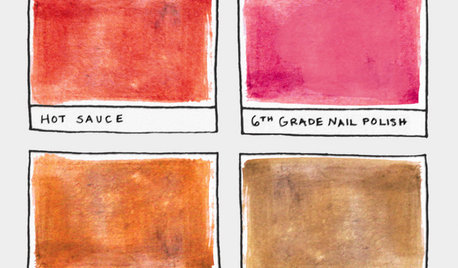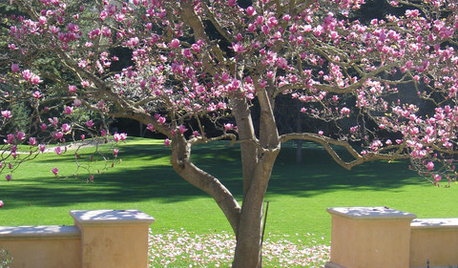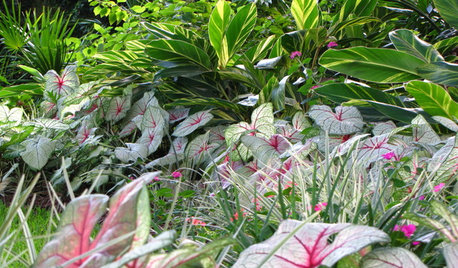Burnt Elephant Ears! Help!
Kay_Wanda
19 years ago
Featured Answer
Sort by:Oldest
Comments (9)
Dancey
19 years agoPterostyrax
19 years agoRelated Professionals
Simi Valley Landscape Architects & Landscape Designers · Aurora Landscape Contractors · Clermont Landscape Contractors · Waterbury Landscape Contractors · Bridgeview Landscape Contractors · Lakeville Landscape Contractors · Longmont Landscape Contractors · New Braunfels Landscape Contractors · North Canton Landscape Contractors · Secaucus Landscape Contractors · Smyrna Landscape Contractors · Vacaville Landscape Contractors · Woodburn Landscape Contractors · Casselberry Landscape Contractors · Ansonia Landscape ContractorsUser
19 years agoKay_Wanda_2
19 years agoStacyInAustin_z8b
19 years agoJosh
19 years agoladymudduck
19 years agoPadinka
19 years ago
Related Stories

COLORPick-a-Paint Help: How to Quit Procrastinating on Color Choice
If you're up to your ears in paint chips but no further to pinning down a hue, our new 3-part series is for you
Full Story
FUN HOUZZ16 Creative Paint Color Names We Haven't Seen — Yet
Someday, the namers of new paint colors will finally run out of ideas. We're here to help
Full Story
DECORATING GUIDESHow to Savor Your Beautifully Imperfect Home
Hardly anyone escapes home design envy. These strategies can help you appreciate your home for all it offers you right now
Full Story
LIFE10 Ways to Honor and Remember a Departed Loved One at Home
Help the grieving process and keep beautiful memories alive with these thoughtful tributes
Full Story
DECORATING GUIDESDecorating 101: Do It Yourself or Hire a Pro?
Learn the advantages and disadvantages of decorating alone and bringing in skilled help
Full Story
LIFEThe Polite House: How to Set Rules for Adult Children Living at Home
Here are 3 important conversations to have, and the language that will help you succeed
Full Story
HOLIDAYSMake Your Checklist for Entertaining Season
Tailor this master list to help you set the scene — and table — for the holidays
Full Story
LIFE11 Apartment Hunting Tips for Renters
Land the right new rental home the smart way, with this insight to help you focus, organize and avoid surprises
Full Story
LANDSCAPE DESIGNDitch Shade Garden Gloom the Tropical Way
Has your shade garden strayed too far to the dark side? Help it see the light with tropical bulbs, ground covers and even houseplants
Full Story
KITCHEN MAKEOVERSKitchen of the Week: Rich Materials, Better Flow and a Garden View
Adding an island and bumping out a bay window improve this kitchen’s layout and outdoor connection
Full StorySponsored






Josh